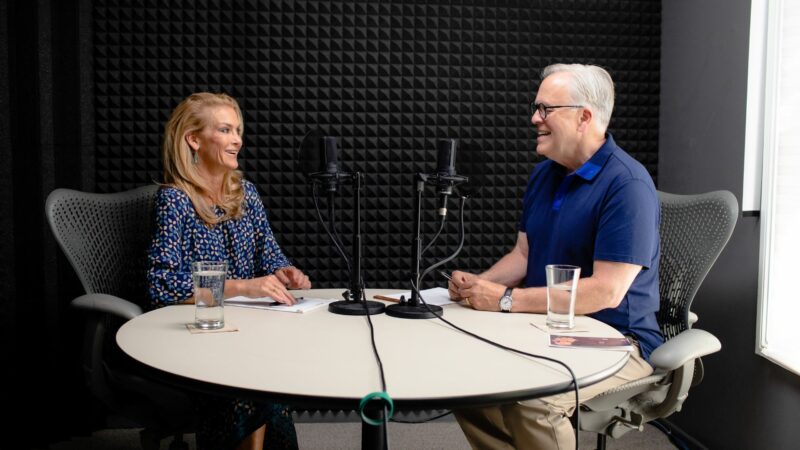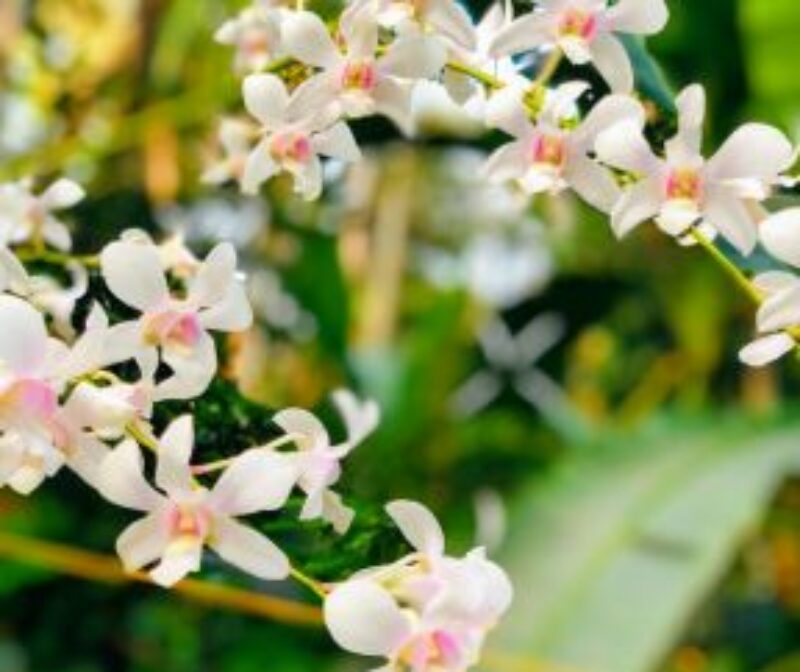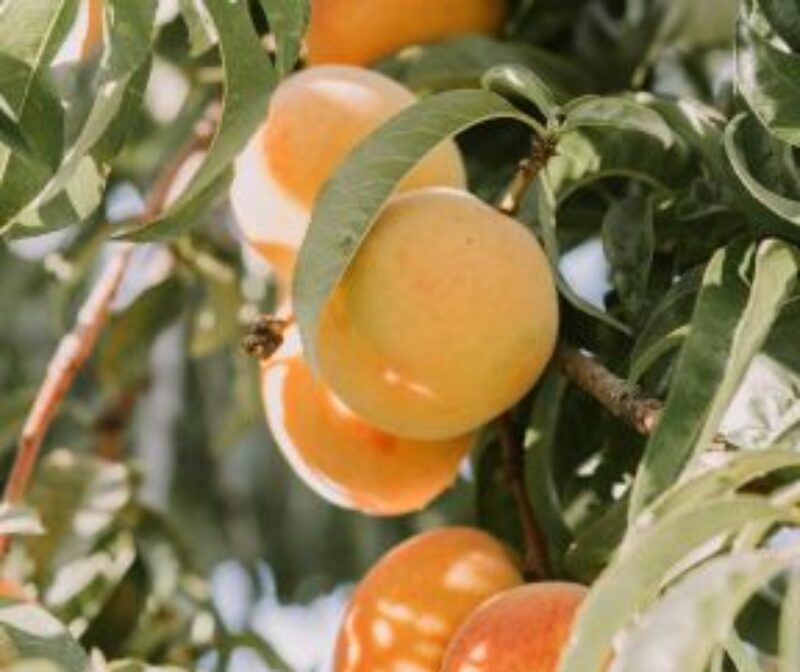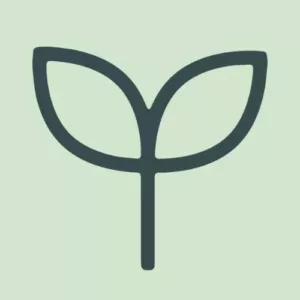“He is like a tree planted by streams of water that yields fruit in its season, and its leaf does not wither. In all that he does, he prospers.” (Psalm 1:3)
I once visited a garden that spanned hundreds of acres, home to vast varieties of flowers, plants, and trees, all perfectly manicured in royal Alice in Wonderland fashion. There were more species than I could possibly identify (Google Lens, however—brilliant). I found one tree exceptionally striking, which I came to discover was a Copper Beech tree. It towered over me like a cathedral in breadth and width and was likely hundreds of years old. There was a particular weight and sense of stability that accompanied this moment of standing in the presence of something that existed so many years before me, that I was able to make present company of, and yet that would still likely outlive me. I felt like I was standing in many centuries all at once.
This tree may be a Goliath now, but we know it began as a tiny seed. Over time, the seed gave way to roots, a shoot, a trunk, and then branches, leaves and fruit. The health of its root system ensured that every other part could flourish into its purpose and withstand hard times. With the right roots, life thrives. Just like the trees, we are each seeds that have been planted and need a healthy root system to fully live out our purpose.
What influences how we bear fruit in our lives?
Simply, our sources of meaning, our relationships, and our practices help us develop strong roots so that we can grow toward the purposes for which we are created. A seed has no control over where it is planted, what kind of soil it is planted in, or even the type of tree it will become. Considering ourselves in the metaphor of the seed, we, likewise, have not chosen our soil—our families, birth location, formative relationships, childhood experiences, community—or our gifts, talents, and personality. All of these factors offer us beliefs, relationships and practices, and influence who we become and what we believe about ourselves. We develop within these contexts.
In a perfect world, our caregivers, communities, and belief systems would perfectly support us, but because we are unique and the world is imperfect, we have imperfect influences along the way. We might feel that the soil we are planted in is keeping us from growing. We might have a mixture of healthy and unhealthy roots (practices, beliefs, relationships) developing simultaneously from the very beginning of our lives. As we get older, we gain more self-awareness and agency to prune or cultivate the roots that either don’t support us or provide us nutrients. Once we recognize there are certain things we cannot change or control, it’s possible to think of how we might cultivate the soil we are in and grow where we have been planted, or perhaps we need a radical transplanting of our roots.
How do we grow our spiritual root systems?
Let’s start with what we can do to grow strong within our contexts. Becoming more aware of who we are, how we spend our time, and who we spend our time with matters. With more self-awareness of our roots—our beliefs, relationships, the practices we use to support our growth—and the systems that formed us, we can make conscious choices about developing the roots we have and also enriching the soil in which we grow. To take the metaphor of the tree further, we can seriously consider what we are growing toward and what we need to prune away. We will see the fruits of these choices in our lives in how we contribute and share our talents, skills, and passions with the world around us.
Beliefs
Strong roots require beliefs that help us feel loved and connected to something bigger than we are, and that propel us toward love and contribution. Our beliefs help us make sense of the world and what we value. Our beliefs help us find meaning and hope during difficulties. For Christians, biblical wisdom and the life of Christ help shape how we understand who God is, and our place in creation. Our upbringing plays a big role in how we understand God. It’s easier to feel loved by God when we experienced love from a parent or caregiver. If we lacked this context as a child, we can prune our beliefs about God’s love through loving relationships and experiences with God and with others as we grow.
Relationships
For healthy roots, we need loving relationships to support us. We are designed uniquely, but our root systems develop alongside others, not in a vacuum. The reflective lens of others helps us discover who we are and to whom we belong. The stories we tell ourselves about our lives, our narratives, and the way we live out love in the world, develop within contexts of our relationships. When we fit well within our contexts, the people around us and the communities we are part of affirm our uniqueness—they provide health and healing for our root systems so we are able to grow into our purposes with and for others. We need love modeled for us and we need to experience feelings of love and opportunities to practice being loving toward others.
Practices
Our practices put us in touch with God’s love, help us feel connected to something bigger than we are, connect us to our embodied selves, reinforce our beliefs, and deepen our relationships. Spiritual practices create space to grow deeper and they open us toward loving relationships with God, ourselves, and others. Through meditating on scripture, mindfulness, prayer, and other body-based practices that allow us to become grounded, connected, and directed, our roots support a sturdy trunk, and our branches can bear fruit. Even the shedding of our leaves will fertilize the soil in which we live.
We Need Diversity for a Flourishing World
A seed cannot choose what type of tree it wants to be, and we cannot try to be something other than what we are created to be. Conformity to each other is not the goal—that would mean most people would be trying to fulfill someone else’s purpose. It is important that the people and communities around us are affirming us as unique and wonderfully made and created for unique purposes that will unfold over our lifetimes.
Christians believe that we share the telos of conforming to the image of Jesus. And while we are intended to live in community with one another, we are called to do this in our own unique ways—for Christians this means becoming more like Jesus, but according to our individual designs. We are each entrusted with offerings for the world as unique as our fingerprints, just like each differing aspect of creation. If we were all massive Copper Beech trees, who would delight the world with the fragrance of the Sweet Olive tree or amuse us with the eccentricity of a Joshua tree? The diversity of our gifts and passions contribute to the full expression of God’s love, embodied on earth. We are each born in unique contexts and grow roots (beliefs, relationships, and practices). We need strong roots to become thriving people. We are trees in a larger ecology, deeply interconnected and uniquely beautiful.
Offering our uniqueness and our fruit to the diversity of the world’s past and future allows us to live into “many centuries” at once, reaching our branches out into creation to live out God’s love and create a flourishing world.
Practice
How often have you let your mind wander to thoughts of your childhood? Most of us have daydreamed about events and people from our youth, with a mixture of both pleasant and unpleasant emotions.
Reflecting on our past can help us understand our present and give us insight into our future. Our pasts are as unique as we are, and, whether good or bad, they have shaped us into who and where we are today.
- Take a moment and try to identify one core belief (“God is loving,” “I have value,” “I am alone in this world.”). See this belief as the end of a string that you are holding in your hand. Picture yourself pulling on the string attempting to find its origin. You may have to lift a few rugs and move some furniture, but if you follow long enough, you will find the source of your belief.
- Do you find that the origin of this belief comes from a healthy or unhealthy situation? Consider how this belief is serving you today.
- What kind of fruit has it produced in my life?
- Does it make me feel loved?
- Does it help me extend love to others?
- Is it moving me towards my greater purpose in life?
- Pausing with these beliefs and questions can help us cognitively link our past and present and inspire us to pursue ways to cultivate our soil towards health. If we recognize we lacked loving relationships in our childhood, we can choose to pursue them now, and to know we are worthy of love.
Continue Exploring

Practices
A Radical Idea: Becoming Skilled in Our Own Well-being
Wellbeing is something we can actively cultivate through practice, or through a practice of "mental hygiene."

Blog
Conversing on Thriving
Pamela King discusses how community and purpose contribute to human development and flourishing.

Christian
What is Thriving and Why is it Important?
Psychology and theology come together to provide a vision for the good life

